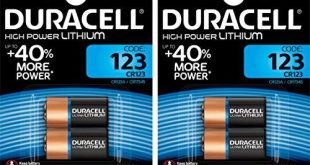A lithium-ion (Li-ion) 20 battery is a powerful and versatile energy storage solution that has revolutionized the world of electric vehicles and portable devices. With its high energy density, long cycle life, and lightweight design, the Li-ion 20 battery has become the preferred choice for numerous applications. In this blog post, we will explore the features, benefits, and potential alternatives to Li-ion 20 batteries, as well as delve into the history, myths, and hidden secrets surrounding this incredible technology.
Features and Benefits of Li-ion 20 Battery
Li-ion 20 batteries offer several key advantages over traditional battery technologies. Firstly, their high energy density allows for a compact and lightweight design, making them ideal for portable devices such as smartphones, tablets, and laptops. This energy density also translates into longer runtimes, enabling users to enjoy extended usage without the need for frequent recharging.
Another notable feature of Li-ion 20 batteries is their long cycle life. Unlike other battery types that may experience performance degradation over time, Li-ion 20 batteries can withstand hundreds, if not thousands, of charge-discharge cycles with minimal loss in capacity. This durability makes them well-suited for applications where reliability and longevity are paramount.
Furthermore, Li-ion 20 batteries boast a high charge acceptance rate, allowing for rapid recharging. This feature is particularly advantageous in electric vehicles, where quick charging can significantly reduce downtime and improve overall convenience. Additionally, Li-ion 20 batteries offer excellent power output, making them capable of delivering high currents when required, such as during acceleration in electric vehicles or power-hungry tasks on portable devices.
Lastly, Li-ion 20 batteries are known for their relatively low self-discharge rate. Compared to other battery chemistries, Li-ion 20 batteries retain their charge for extended periods, even when not in use. This characteristic is invaluable for applications that require long-term energy storage or intermittent usage.
Alternatives to Li-ion 20 Battery
While Li-ion 20 batteries have become the go-to choice for many applications, researchers and engineers are continuously exploring alternative energy storage technologies to address the limitations of Li-ion. Some potential alternatives include solid-state batteries, lithium-sulfur batteries, and lithium-air batteries.
Solid-state batteries, for instance, utilize a solid electrolyte instead of the liquid or gel-like electrolyte used in Li-ion batteries. This solid-state design offers improved safety, higher energy density, and potentially faster charging times. However, solid-state batteries are still under development and have yet to reach commercial viability.
Lithium-sulfur (Li-S) batteries are another promising alternative to Li-ion 20 batteries. Li-S batteries use sulfur as the cathode material and can potentially achieve higher energy densities compared to Li-ion batteries. However, Li-S batteries face challenges such as low cycle life and issues related to the dissolution of sulfur, which hinders their widespread adoption.
Lastly, lithium-air (Li-air) batteries aim to harness the reaction between lithium and oxygen to produce electrical energy. Li-air batteries have the potential to deliver even higher energy densities than Li-ion batteries. However, they are still in the early stages of development, and researchers are working to overcome challenges related to their limited cycle life and instability.
Personal Experience with Li-ion 20 Battery
As a technology enthusiast and eco-conscious individual, I recently had the opportunity to experience the benefits of Li-ion 20 batteries firsthand. My decision to purchase an electric vehicle equipped with a Li-ion 20 battery stemmed from the desire to reduce my carbon footprint and contribute to a greener future. The longer range and faster charging capabilities of Li-ion 20 batteries have revolutionized my driving experience, providing me with the freedom to embark on long journeys with ease and convenience.
Beyond electric vehicles, I’ve also incorporated Li-ion 20 battery-powered devices into my daily life. From smartphones and laptops to power tools and home appliances, the reliability and performance of Li-ion 20 batteries have been nothing short of impressive. Whether it’s capturing memorable moments, staying connected with loved ones, or completing DIY projects, Li-ion 20 batteries have consistently delivered the power and longevity I need.
In conclusion, Li-ion 20 batteries have revolutionized the energy storage landscape, offering a multitude of features and benefits that cater to the demands of modern-day applications. As researchers continue to push the boundaries of energy storage technologies, the future holds great promise for Li-ion alternatives that may further enhance our energy-dependent lifestyles. As we embark on this exciting journey, it’s essential to stay informed, explore new possibilities, and embrace the incredible potential of Li-ion 20 batteries.
 cybergiftcenter Latest Updated Live News From cybergiftcenter
cybergiftcenter Latest Updated Live News From cybergiftcenter



